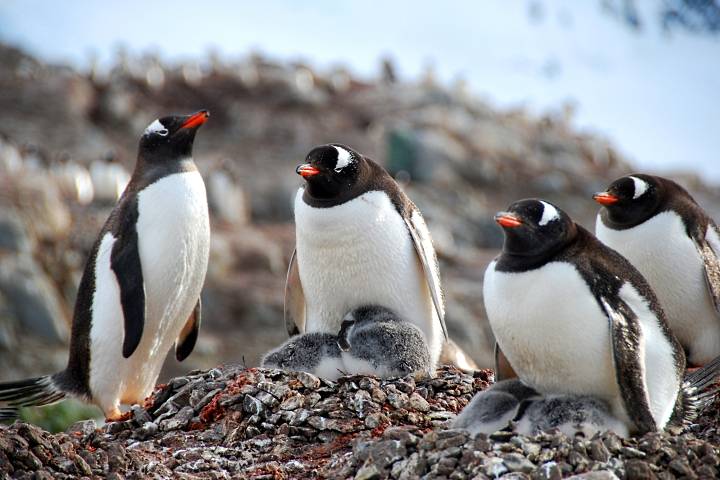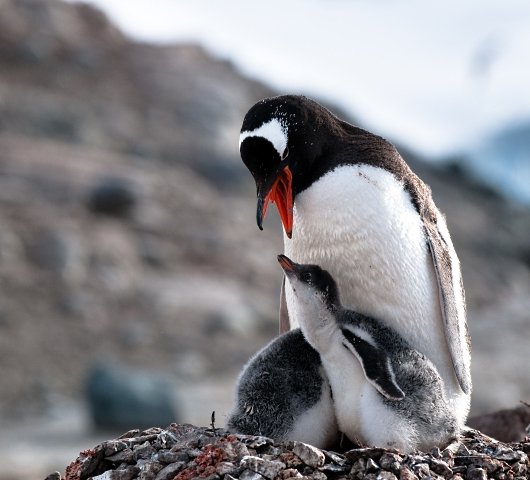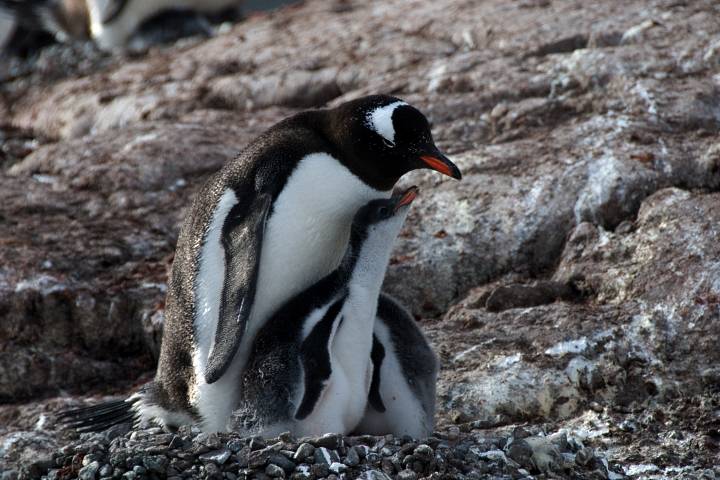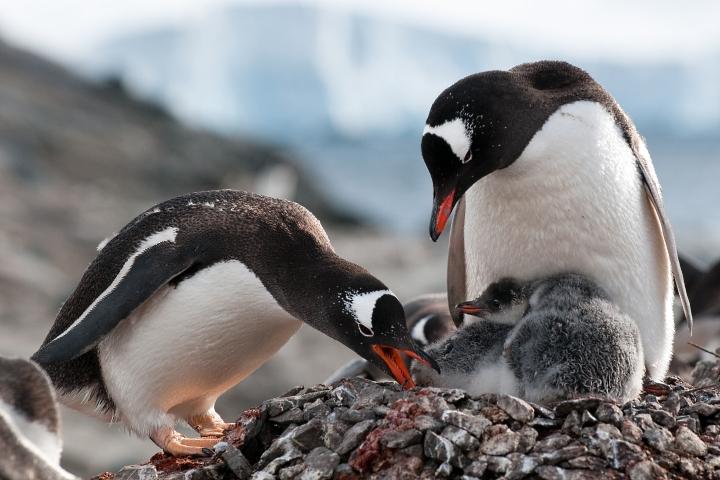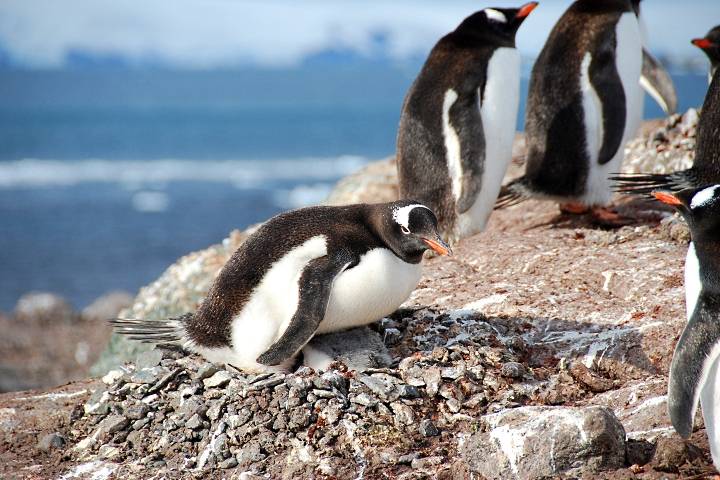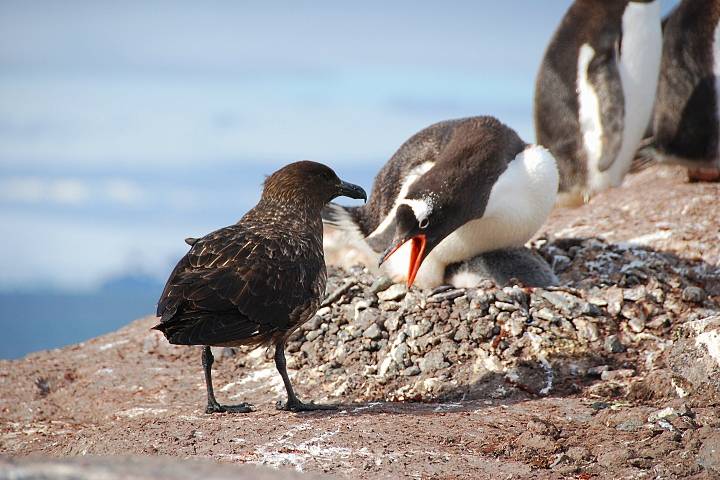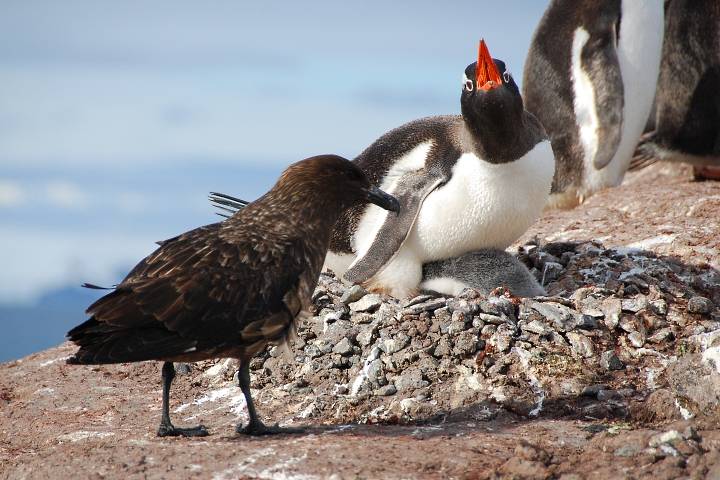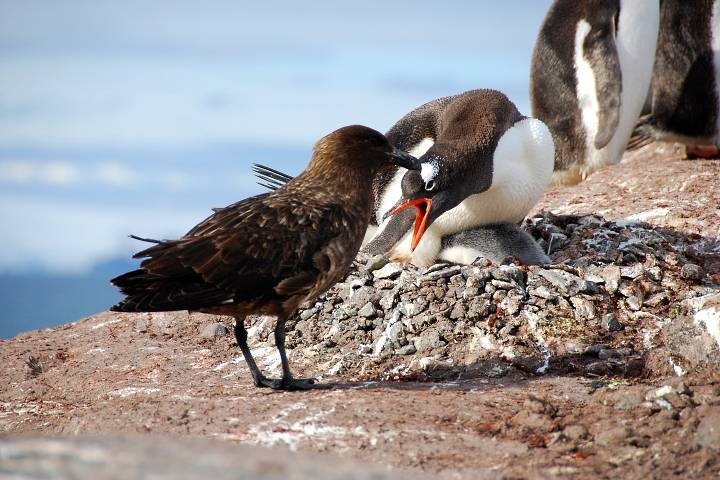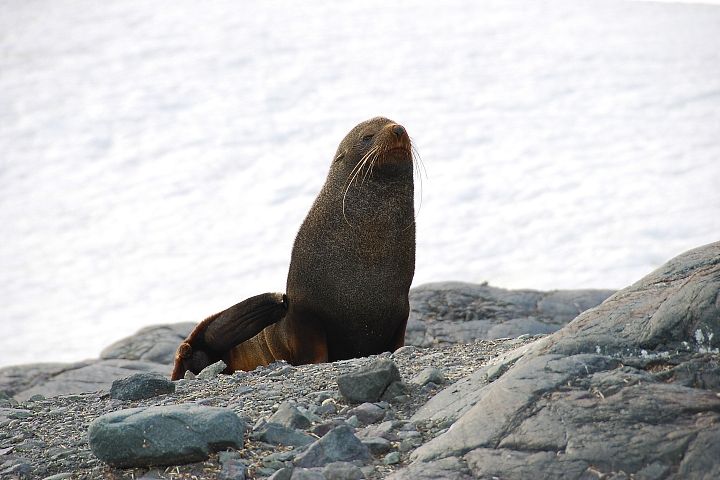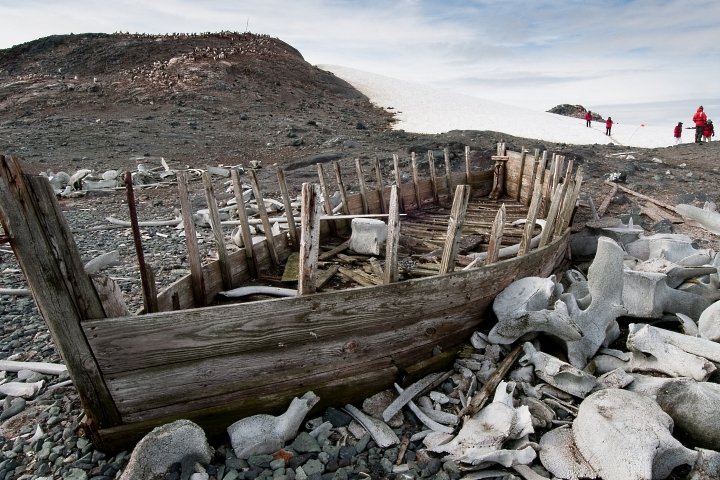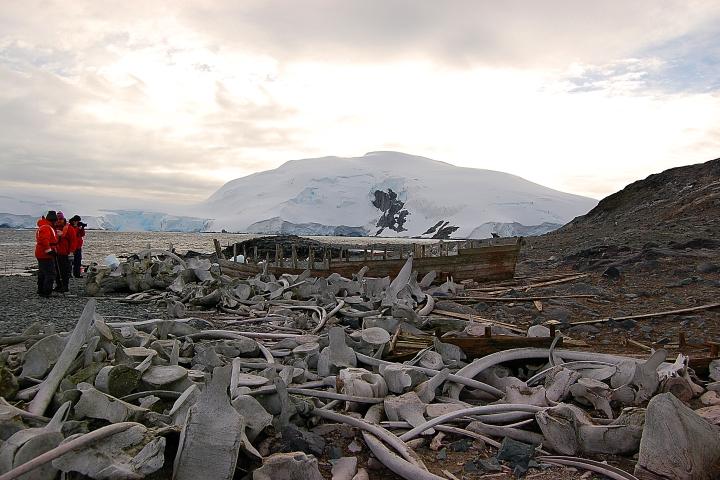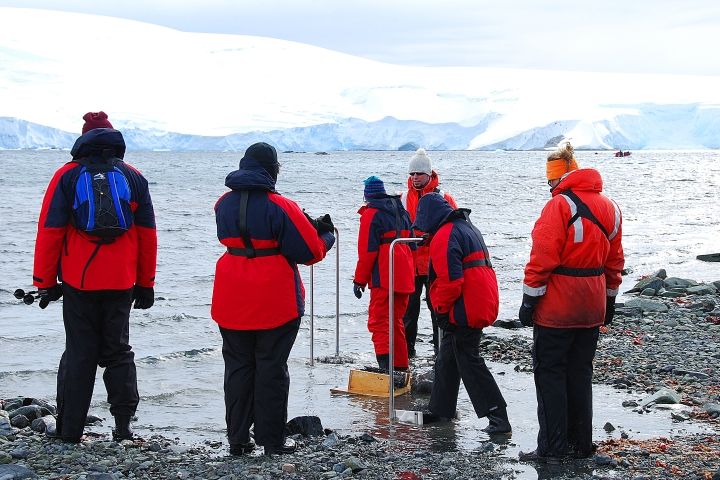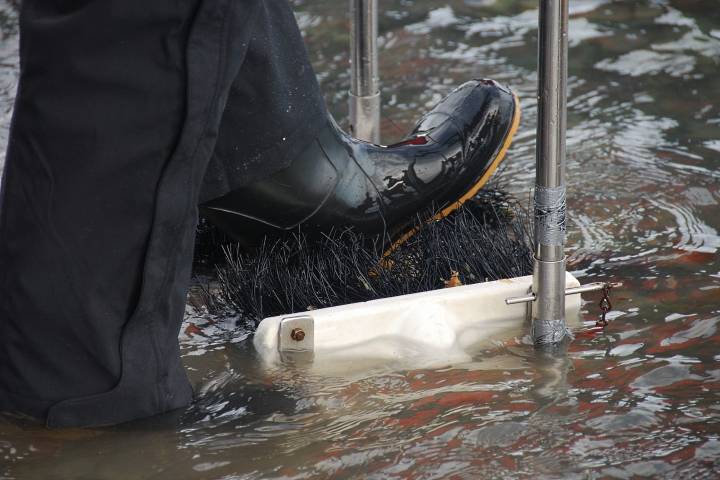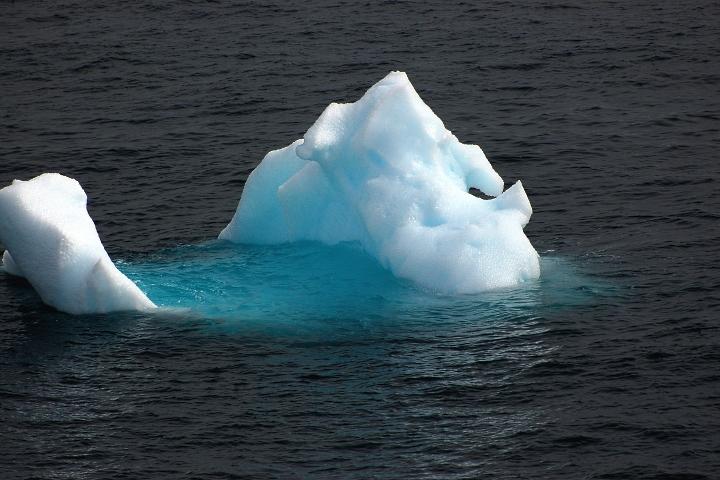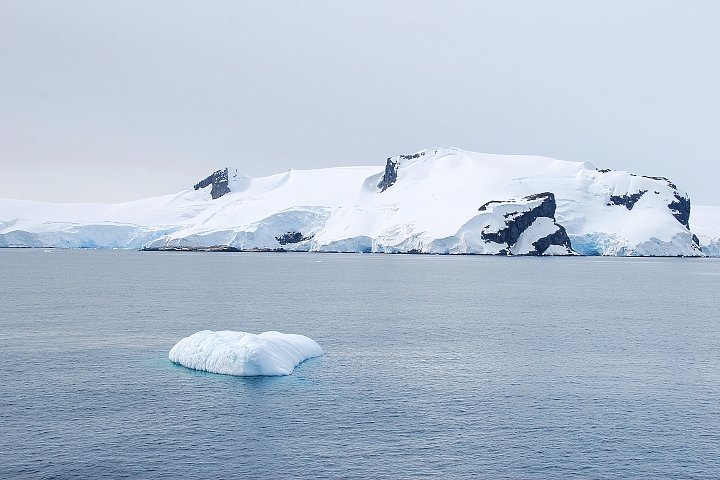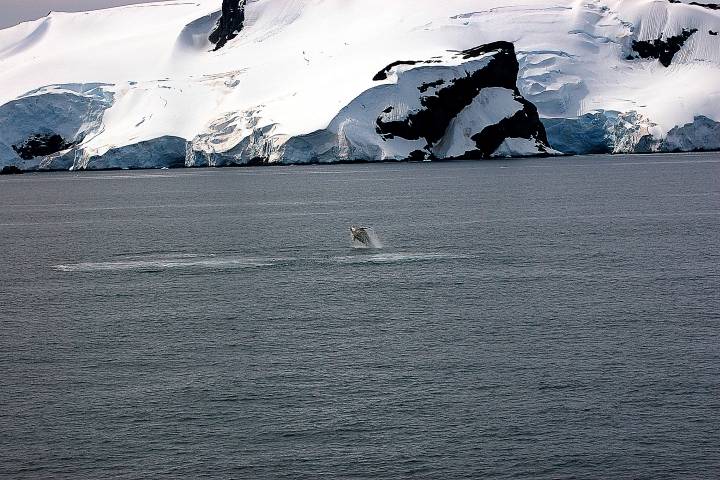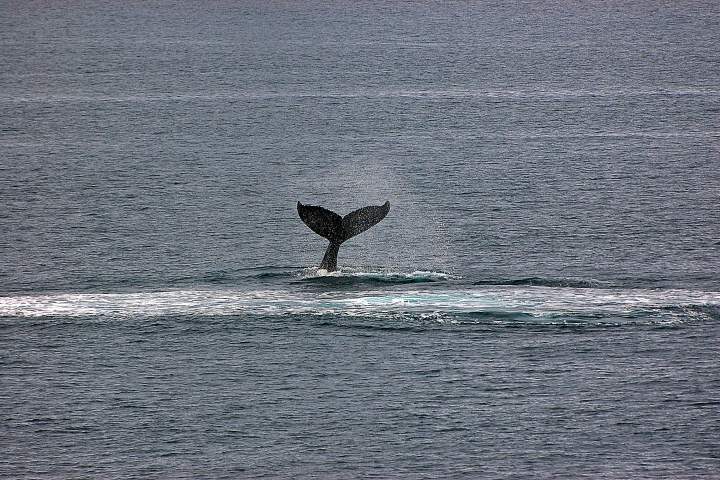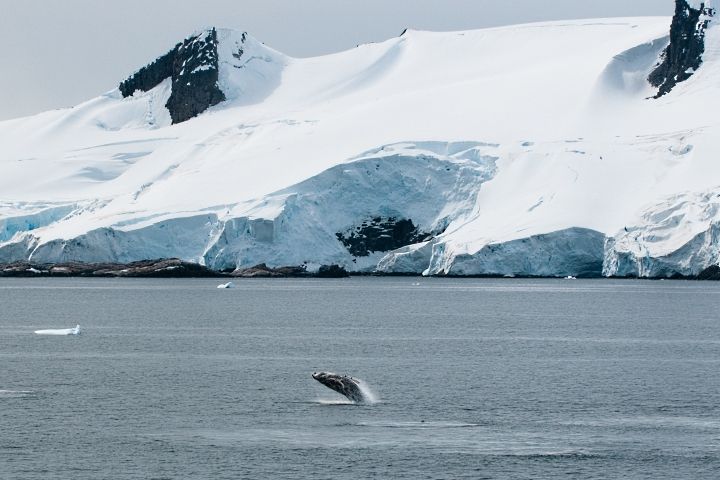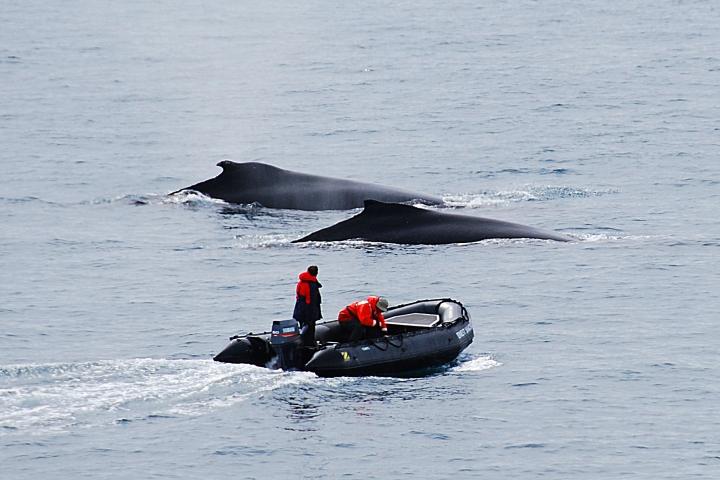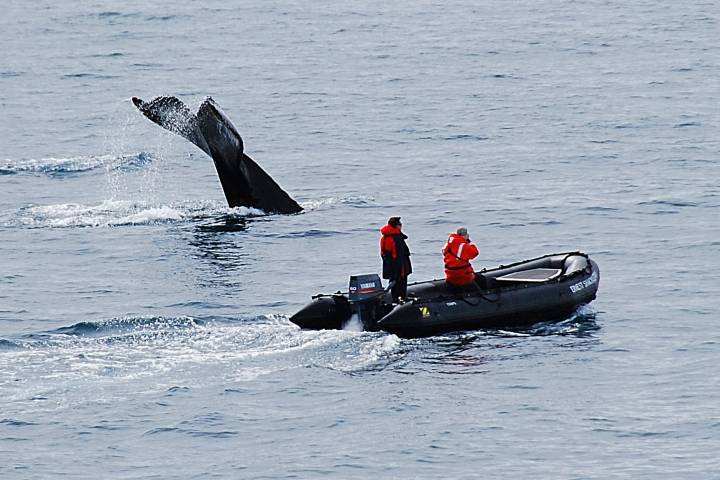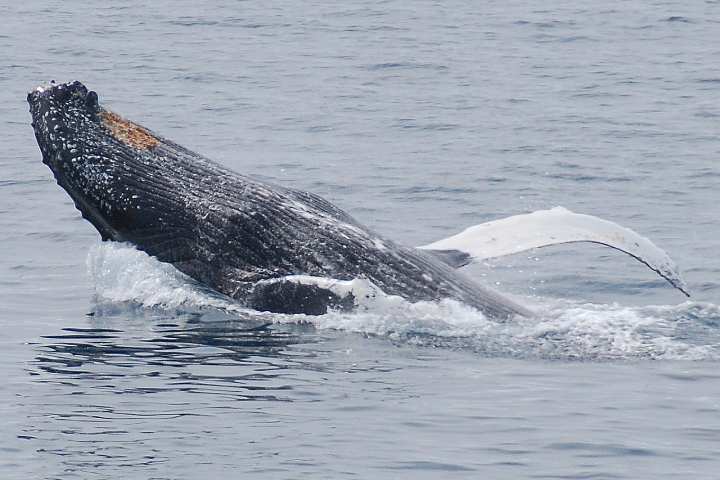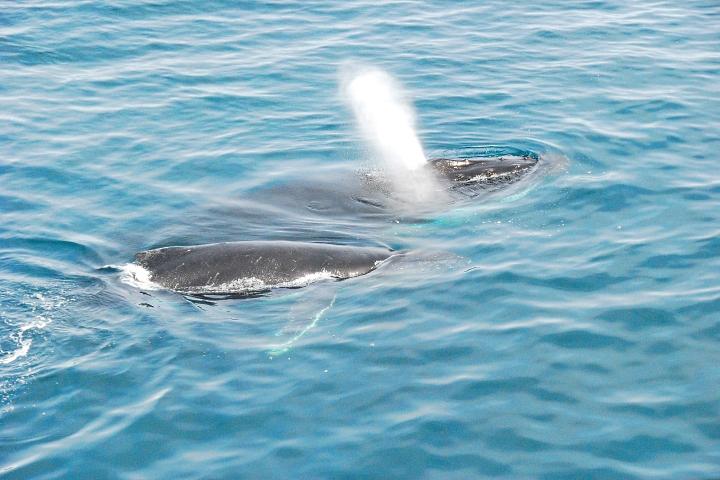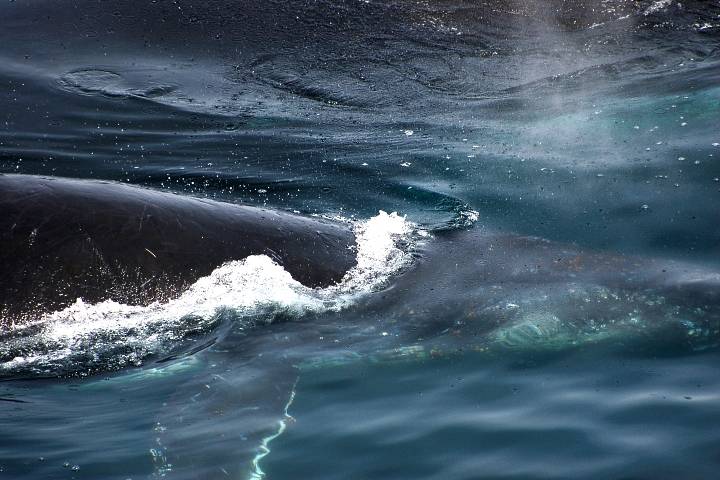Antarctica Cruise, Part 4: Antarctica's Wild Side
"If Antarctica were music it would be Mozart. Art, and it would be Michelangelo. Literature, and it would be Shakespeare. And yet it is something even greater; the only place on Earth that is still as it should be."
Andrew Denton
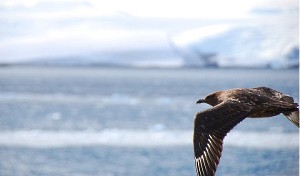 The skua circled the gentoo penguin rookery like an aerial grim reaper, searching for an opportunity. With a 52-inch wingspan, this great, brown predator cast a wide shadow.
The skua circled the gentoo penguin rookery like an aerial grim reaper, searching for an opportunity. With a 52-inch wingspan, this great, brown predator cast a wide shadow.
Below, on a rocky knoll on a windswept island in Mikkelsen Harbour, worried adult gentoos tried to shield chicks in their nests with their own bodies.
There are no trees in Antarctica, and thus no twigs or leaves for nest-building, so these gentoo nests were built with stones. I knew from my briefing onboard the Minerva that the skua was after the two-week-old chicks.
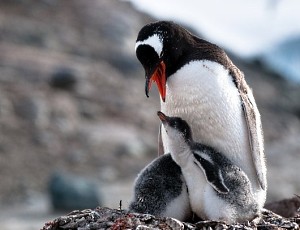
I spotted the ship's outstanding ornithologist, Patri, standing in the snow about 30 yards from the colony, and walked over to express my hope that we would not see a chick snatched away during our visit.
"Skuas are beautiful birds," she smiled, "and they must take care of their own families. It's part of nature."
So much for any misguided thought I might have had about shooing the bird away.
In this strange new world, we were a bit like the crew of the Starship Enterprise, unable to interfere in the affairs of the places we visited no matter what we encountered.
That's probably a good thing, I thought to myself, as I stared down a snow-covered hill to the bones of blue whales that littered the beach.
Blue whales are the largest animals on Earth today and have been recorded in excess of 110 feet in length. They are believed to be the largest animals ever to have lived, including dinosaurs.
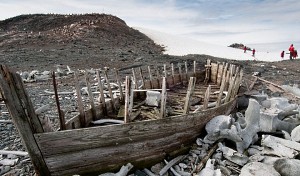
One hundred years ago, men came to Antarctica to slaughter seals and whales by the tens of thousands, driving species such as the blue whale to the brink of extinction.
Boats entered this natural harbor with their dead trophies lashed to their hulls, and on that beach the whales were skinned and their blubber was boiled down for oil. The rest of the carcass was set adrift as waste, called a "skrot."
As I gazed out at the snow-covered mountains and calving glaciers lining the harbor, I was grateful to live in a different time.
Today, Antarctica is governed by a treaty signed by all major nations with the goal of preserving the status quo and preventing contamination, commercialization or militarization of the continent. The treaty's authors have not been entirely successful, but tremendous progress has been made.
Fishing in Antarctic waters is regulated and a global moratorium on whaling has been successful in sharply reducing the harvest of whales, though Japan still kills about 1,000 Antarctic whales annually. The Japanese take their whales in the name of "research," though whale meat ends up in sushi restaurants throughout the country.
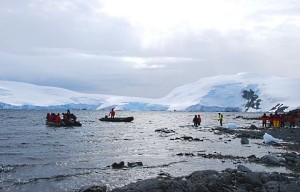
To limit the impact of cruise ships on Antarctic wildlife habitats, vessels carrying more than 500 passengers are not allowed to take any passengers ashore. On smaller vessels, no more than 100 passengers can go ashore at one time. The 198 passengers on the Minerva are divided into two groups and each group goes ashore twice a day.
At the stairs to the Zodiacs, before leaving or entering the ship, we step ankle-deep into an anti-bacterial liquid to prevent cross-contamination. We do not touch or leave anything ashore and of course do not feed or disturb the wildlife, which has no apparent fear of humans and seems almost indifferent to our presence.
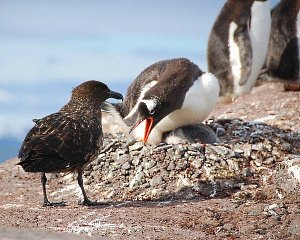
Certainly these gentoos on Mikkelsen were oblivious to our party, riveted instead on the skua hovering overhead, searching for one unattended chick.
To my relief, there were none, but the bird landed anyway and approached a penguin at the outer edge of the colony.
Penguins are defenseless against the beaks and claws of skuas, and as the bird walked menacingly close it eyed a chick that was almost buried beneath its parent. But the bond between parent and offspring was strong, and the animated, squawking penguin refused to leave the nest.
The show of bravado -- essentially a bluff -- proved effective. The frustrated skua eventually took flight, and I decided to leave while the gentoos were still ahead.
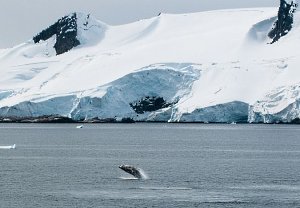
I walked down the snowy hillside, picked my way through the massive whale bones, cleaned my boots in the "guanomatic" (fixed brushes on a wooden platform placed in shallow water, for the removal of penguin guano) and boarded the Zodiac for the Minerva.
An hour later, standing by the rail as we left the harbor, we were treated to whales the way they were meant to be, playfully breaching and slapping the water with their pectoral fins.
It was a magnificent sight, the kind of spectacle that makes you appreciate that you are part of something bigger. Still, it was only a warm-up for an afternoon that would exceed anything that had come before.
Alan Fox, somewhere in Antarctica
Sincerely,
Alan Fox
Executive Chairman
Vacations To Go
Related newsletters:
Antarctica Cruise: On My Way
Antarctica Cruise, Part 1: Paying Drake’s Toll
Antarctica Cruise, Part 2: Landing in Antarctica
Antarctica Cruise, Part 3: The Age of Explorers
Antarctica Cruise, Part 5: Wonderland on Ice
Antarctica Cruise, Part 6: A Place Like No Other

